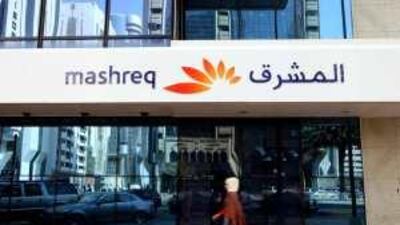Banks in the UAE have until Sunday to disclose details of accounts held by foreign officials and politicians as the Central Bank tightens regulations on money laundering. The move, which brings the UAE into line with standards in other international financial centres, follows recent high-profile cases involving alleged fraud in the region and internationally.
International regulators are increasing pressure on banks to reduce their exposure to the risk of money laundering. Claims by the troubled Saudi Arabian conglomerate Ahmad Hamad Al Gosaibi and Brothers against Dubai's Mashreqbank and Maan al Sanea, the billionaire head of the Saudi Saad Group, for alleged fraud, and the case of jailed US financier Bernie Madoff, convicted of swindling $65 billion (Dh238.74bn) from investors, are among events that have heightened concerns about irregularities in global financial systems.
Banks, investment firms, finance companies and other financial institutions had until tomorrow to submit details of politically connected foreigners with bank accounts to the regulator's Banking Supervision and Examination Department, said a source within the Central Bank who asked to remain anonymous. The name, nationality and current and previous political positions held by each individual are required by the regulator, as requested in a directive it issued to banks.
After tomorrow, banks will have to seek written permission from the country's monetary authority before they can open accounts on behalf of foreign individuals with political links, or what the central bank describes as "foreign politically exposed persons". But the source said the deadline may be flexible as the Central Bank's aim was to maintain open co-operation with banks on the matter. "This move is global good practice and is a step in line with other developed nations," said a regional chief executive of one UAE bank, who declined to be named.
Eric Milne, the head of banking and finance for the region at the law firm Simmons and Simmons in Dubai, said: "This is entirely in keeping with what the market perceives to be regulators tightening controls across the banking sector, whether it be in wholesale or retail banking. "There's a move towards tighter regulation generally around the world. It's driven by issues connected with money laundering and whether banks want to be associated with particular individuals."
"Foreign politically exposed persons" are defined by the Central Bank as individuals who are or have been entrusted with prominent public functions in a foreign country, such as heads of state or government, senior politicians, senior government, judicial or military officials, senior executives of state-owned corporations and officials of political parties. Such officials and executives have attracted close scrutiny from financial authorities around the world.
The US 2001 Patriot Act requires the country's banks to identify and monitor accounts held by senior foreign political figures to ensure funds do not come from corrupt sources. Under money-laundering legislation in Canada, financial institutions are required to determine if clients are politically exposed foreign persons. Banks in the UK are advised by the country's joint money-laundering steering group to first determine whether a client is politically exposed, and then secure senior management approval for establishing or continuing business with such individuals.
tarnold@thenational.ae

UAE banks join global money laundering battle
UAE banks have until Sunday to disclose details of accounts held by foreign officials and politicians.
Most popular today
